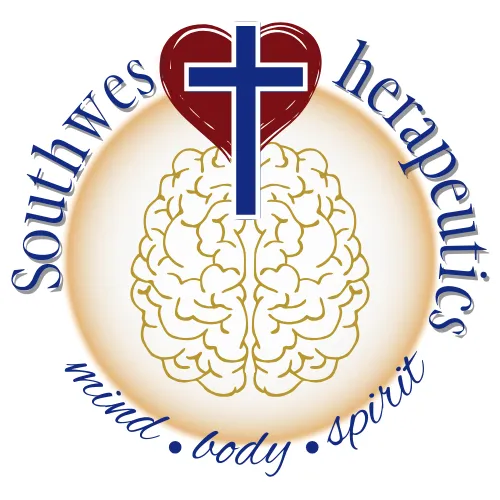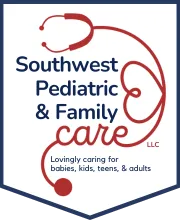
June is PTSD Awareness Month: Understanding the Signs and Accessing the Support You Deserve
Post-Traumatic Stress Disorder (PTSD) is a serious and often misunderstood mental health condition that can affect individuals of all ages, races, and walks of life. In honor of PTSD Awareness Month, Southwest Therapeutics encourages our community to take a moment to learn about the signs, the impact, and the hope that recovery brings. Whether trauma occurred recently or years ago, healing is always possible—and help is available.
What Is PTSD?
According to the DSM-5-TR, PTSD is a trauma- and stressor-related disorder that develops following exposure to actual or threatened death, serious injury, or sexual violence. This exposure may be direct, witnessed, learned about (happening to a close family member or friend), or occur through repeated indirect exposure (e.g., first responders or mental health professionals) (American Psychiatric Association [APA], 2022).
Core Symptoms of PTSD (DSM-5-TR Criteria)
PTSD is diagnosed when symptoms persist for more than one month and cause significant distress or functional impairment. The DSM-5-TR identifies four distinct symptom clusters:
Intrusion (Criterion B):
Recurrent, involuntary, and intrusive distressing memories
Nightmares or flashbacks of the traumatic event
Psychological or physiological distress when exposed to trauma reminders
Avoidance (Criterion C):
Avoidance of distressing memories, thoughts, or feelings related to the trauma
Avoidance of external reminders such as people, places, or activities
Negative Alterations in Cognitions and Mood (Criterion D):
Persistent negative beliefs about oneself, others, or the world (“I’m unsafe,” “No one can be trusted”)
Distorted blame of self or others
Ongoing fear, guilt, shame, or anger
Feelings of detachment or estrangement from others
Diminished interest in significant activities
Marked Alterations in Arousal and Reactivity (Criterion E):
Hypervigilance, exaggerated startle response
Irritability, angry outbursts
Difficulty sleeping or concentrating
Reckless or self-destructive behavior
These symptoms often emerge in complex, overlapping patterns. Recent research supports this complexity—particularly among individuals who also experience depression, with studies suggesting that PTSD and depressive symptoms form mutually reinforcing networks (Lazarov et al., 2020).
Understanding Complex PTSD
In addition to traditional PTSD, the ICD-11 identifies Complex PTSD (C-PTSD)—a condition often resulting from prolonged, repeated trauma such as childhood abuse or long-term domestic violence. C-PTSD includes all PTSD symptoms along with additional challenges like emotional dysregulation, negative self-concept, and interpersonal difficulties (Cloitre, 2025). Recognizing this distinction helps clinicians offer more targeted and compassionate care.
How Southwest Therapeutics Can Help
At Southwest Therapeutics, we understand the unique ways trauma manifests in each person’s life. Our licensed clinicians are trained in trauma-informed and evidence-based practices such as:
Cognitive Behavioral Therapy (CBT)
DBT- Dialectical Behavior Therapy
Mindfulness-Based Interventions
Play Therapy & Expressive Arts for Youth
Trauma-Focused Cognitive Behavior Therapy
We offer a safe, supportive environment where clients can process trauma at their own pace. Whether you're seeking help for recent trauma or something long-standing, our team is here to walk beside you in your healing journey.
You’re Not Alone
Healing from PTSD begins with acknowledgment and support. If you or a loved one may be experiencing symptoms of PTSD, early intervention can improve outcomes and promote long-term wellness. At Southwest Therapeutics, we’re here to help you take that next step.
For national resources and additional information, visit:
References
American Psychiatric Association. (2022). Diagnostic and statistical manual of mental disorders (5th ed., text rev.; DSM-5-TR).
Cloitre, M. (2025). The promise of ICD‐11‐defined PTSD and complex PTSD to improve care for trauma‐exposed populations. World Psychiatry, 24(1), 82–83. https://doi.org/10.1002/wps.21271
Lazarov, A., Suarez-Jimenez, B., Levi, O., Coppersmith, D. D. L., Lubin, G., Pine, D. S., Bar-Haim, Y., Abend, R., & Neria, Y. (2020). Symptom structure of PTSD and co-morbid depressive symptoms – a network analysis of combat veteran patients. Psychological Medicine, 50(13), 2154–2170. https://doi.org/10.1017/S0033291719002034
Substance Abuse and Mental Health Services Administration. (n.d.). PTSD: National Center for PTSD and Trauma-Informed Care. https://www.samhsa.gov/ptsd



